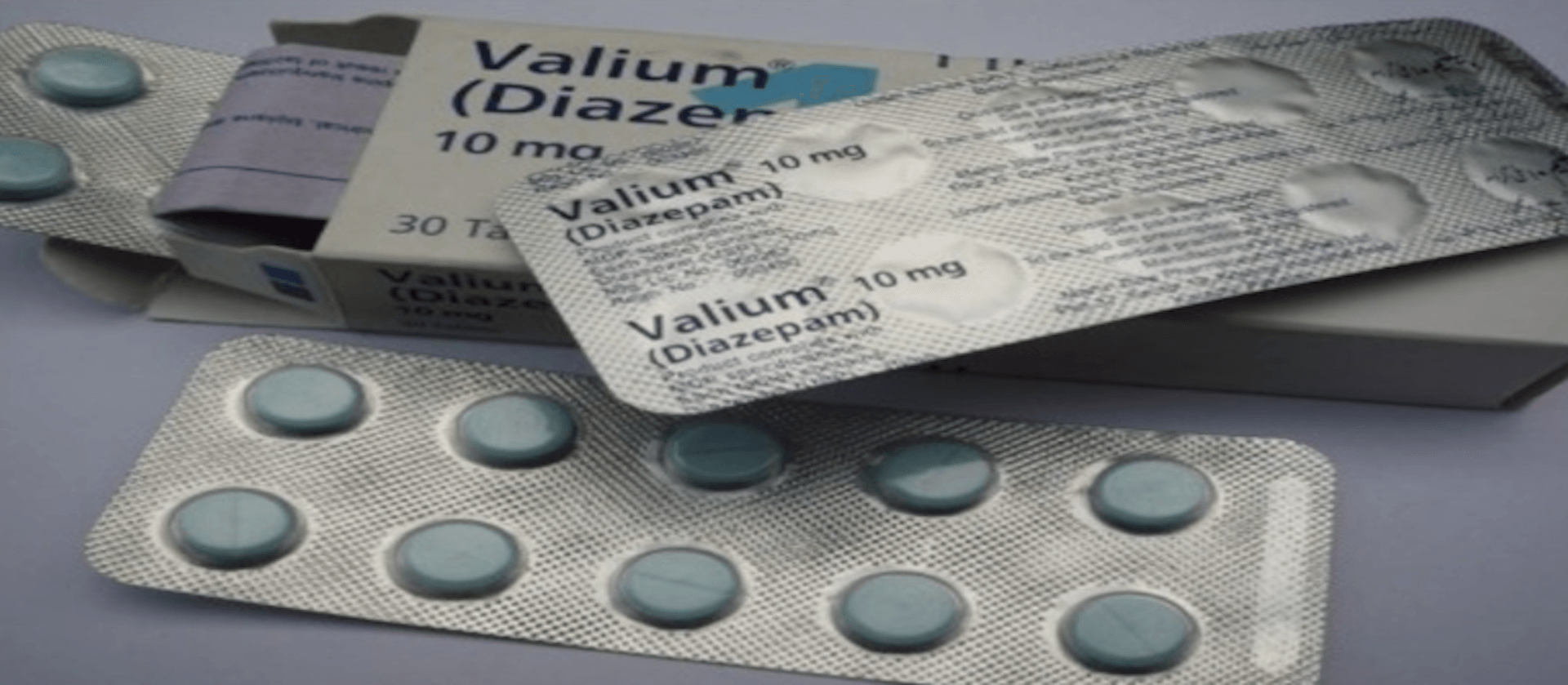Is Valium Good for Anxiety and Panic Attacks? A Clinical Look


Wondering is valium good for anxiety and panic attacks? Explore its clinical benefits, risks, and alternatives to make a more informed treatment decision.
Anxiety and panic attacks can feel overwhelming, making it difficult to navigate daily life. Many individuals wonder, is Valium good for anxiety and panic attacks, especially when seeking fast relief. Valium (diazepam) is a medication often prescribed for its calming effects, but it also comes with important considerations regarding safety and dependence.
At The Forge Recovery Center, we understand how crucial it is to find the right path to lasting recovery — whether for yourself or someone you care about. In this article, we will take a clinical look at Valium’s role in managing anxiety and panic attacks.
Efficacy of Valium in Treating Anxiety and Panic Attacks

When you're caught in the grip of anxiety or a sudden panic attack, finding fast relief becomes the top priority. Valium (diazepam) is known for its rapid onset of action, typically beginning to work within 15 to 60 minutes after being taken orally. This quick calming effect can be incredibly valuable for individuals experiencing acute anxiety symptoms or overwhelming panic episodes.
Valium is particularly effective for short-term relief. It helps by enhancing the brain’s natural calming chemicals (GABA), easing both the physical and emotional intensity of anxiety. However, it’s important to understand that while Valium can provide immediate comfort, it is generally not recommended as a long-term solution due to the risk of developing tolerance and dependence over time.
Compared to other benzodiazepines like Xanax (alprazolam), Valium offers similar relief from anxiety symptoms but with some key differences. Valium tends to have a longer half-life, meaning it stays in your system longer and provides more gradual relief, whereas Xanax acts faster but also wears off more quickly.
This slower, steadier effect makes Valium a preferred choice in some cases, especially when smoother, longer-lasting symptom control is needed. However, both medications carry similar risks for dependence if used without careful medical supervision.
At The Forge Recovery Center, we emphasize understanding both the benefits and the risks when considering medications like Valium. It’s not just about managing symptoms — it’s about building a path to lasting, healthy recovery.
Risks and Considerations
While Valium can be an effective short-term tool for managing anxiety and panic attacks, it’s important to understand the risks involved. Knowing these risks can help you make informed decisions about your treatment options and protect your long-term health.
Potential for Dependence and Withdrawal
One of the most serious concerns with Valium is the risk of dependence when used over time. As your body adjusts to the medication, you may require higher doses to feel the same effects — a process known as tolerance. Over time, stopping Valium without medical support can lead to withdrawal symptoms, including rebound anxiety, insomnia, tremors, and in severe cases, seizures. For this reason, medical supervision is critical when using or discontinuing benzodiazepines like Valium.
Common Side Effects to Know
Like many medications, Valium can cause side effects that impact your daily functioning. Some of the most common include:
Drowsiness
Fatigue
Impaired coordination
These side effects can increase the risk of falls, accidents, and impaired judgment, making activities like driving or operating machinery dangerous while on the medication.
Why Valium Is Not Recommended for Long-Term Use
Because of its addictive potential and side effects, Valium is not recommended for long-term management of anxiety or panic disorders. Long-term treatment typically requires approaches that address the root causes of anxiety rather than just the symptoms, such as cognitive behavioral therapy (CBT), antidepressants like SSRIs, and personalized support programs.
At The Forge Recovery Center, we focus on helping individuals find sustainable, effective solutions for mental health and substance use issues — guiding you or your loved one toward lasting recovery without relying on medications that carry high risks.
Are You Struggling with Mental Health or Addiction?
We Can Help. Call Us Now!
CALL: 877-839-1772
Alternative Treatments for Anxiety and Panic Disorders
While medications like Valium can offer temporary relief, they are not the only — or even the best — solution for managing anxiety and panic attacks in the long run. Many safer, research-backed alternatives are available to help you build lasting resilience without the risks of dependence.
First-Line Treatments: CBT and SSRIs

The gold standard for treating anxiety and panic disorders typically starts with Cognitive Behavioral Therapy (CBT). CBT helps you identify and change negative thought patterns that fuel anxiety, giving you practical tools to manage symptoms and regain control of your life.
In some cases, Selective Serotonin Reuptake Inhibitors (SSRIs) — a class of antidepressants — are prescribed as a safer, long-term medication option. Unlike benzodiazepines, SSRIs do not carry a high risk of dependence and are often highly effective when combined with therapy.
Lifestyle Modifications to Support Recovery
Beyond therapy and medication, lifestyle changes can make a powerful difference in managing anxiety and panic disorders. Developing healthier habits not only reduces symptoms but also builds long-term resilience against future stress.
Some proven strategies include:
Stress management techniques such as deep breathing exercises, progressive muscle relaxation, or journaling. These tools help calm your nervous system and give you a practical way to manage overwhelming emotions in real time.
Regular exercise, which releases mood-enhancing endorphins, improves sleep quality, and reduces physical tension. Even moderate activities like brisk walking, swimming, or yoga can significantly lower anxiety levels.
Mindfulness practices like meditation, breathwork, or mindful movement, which ground you in the present moment and gradually retrain your mind away from fear-based thinking patterns. Over time, mindfulness can improve emotional regulation and overall mental clarity.
These habits not only help reduce anxiety but also strengthen your overall mental health.
Importance of a Personalized Treatment Plan
There is no one-size-fits-all solution when it comes to mental health. That’s why having a comprehensive, individualized treatment plan is crucial. A personalized plan takes into account your unique history, triggers, lifestyle, and recovery goals — offering you the best chance at lasting success.
At The Forge Recovery Center, we work with you to design a treatment plan that supports both immediate relief and long-term healing, combining evidence-based therapies, holistic care, and ongoing support every step of the way.
The Forge Recovery Center’s Approach

At The Forge Recovery Center, we believe that lasting recovery requires more than short-term symptom management — it demands a personalized, whole-person approach that addresses the root causes of anxiety, panic disorders, and substance use.
Personalized Treatment Plans for Every Individual
No two journeys to recovery are the same. That’s why we build individualized treatment plans tailored to your unique needs, history, and goals. Whether you're struggling with anxiety, substance use, or both, our team designs a comprehensive roadmap to help you regain control and find lasting peace of mind.
Integrating Evidence-Based Therapies and Holistic Care
Our treatment programs combine evidence-based therapies — such as Cognitive Behavioral Therapy (CBT), Dialectical Behavior Therapy (DBT), and trauma-informed care — with holistic approaches like mindfulness training, physical wellness activities, and nutritional support. This integrated model strengthens both mental and physical health, providing a stronger foundation for long-term recovery.
Support for Transitioning Away From Benzodiazepines
If you or a loved one is currently dependent on medications like Valium, know that you’re not alone — and recovery is possible. Our clinical team specializes in helping individuals safely transition away from benzodiazepine dependence, using medically supervised detox when necessary and building healthier, sustainable coping mechanisms.
At The Forge Recovery Center, we are committed to walking with you every step of the way — from the first step toward healing to building a life of true freedom and fulfillment.
Are You Struggling with Mental Health or Addiction?
We Can Help. Call Us Now!
CALL: 877-839-1772
Struggling with Anxiety and Panic Attacks? We’re Here to Help
While Valium can offer short-term relief for anxiety and panic attacks, it comes with significant risks that require careful medical supervision. Exploring safer, evidence-based alternatives is often the best path toward lasting recovery. At The Forge Recovery Center, we specialize in personalized treatment plans that address both mental health and substance use disorders. If you or someone you love is seeking a healthier way forward, we’re here to guide you every step of the way. Reach out today — a better, stronger life is possible.
Are You Struggling with Mental Health or Addiction?
We Can Help. Call Us Now!
CALL: 877-839-1772





